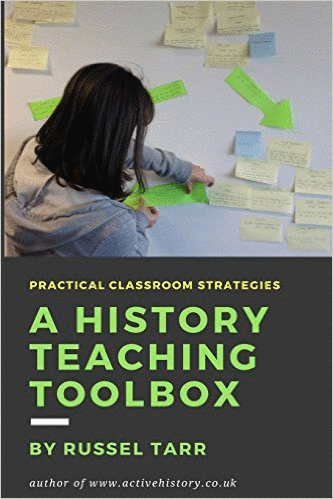The Internal Assessment is an individual project of 2,200 words maximum.The Internal Assessment in History is a chance to study a topic that interests students in depth. It can cover any historical topic of their choice as long as the focus is on an event which took place more than 10 years ago. This topic may be related to something already studied in class, or something entirely different. The mark awarded for the study accounts for 20% of the final grade for Higher Level students, and 25% for Standard Level students. It is marked by the history teacher within the school but is subject to moderation by the IBO. Click on the following headings to get guidance on choosing a question and writing a study.
|
 |
Each school sets its own internal timetable for students to research and complete the Internal Assessment.
Here at the International School of Toulouse, students are given lesson time in the final term of the first year of the course to formulate a question, submit a Initial Proposal Sheet and and to obtain the necessary books and articles to write the essay.
The students are then provided with the Markscheme and Guidance for Students document, and writ the first draft of the study over the Summer holidays.
The first draft is then submitted in the first week of September. The teacher then marks each study according to the Markscheme and Guidance for Students, providing detailed feedback on areas to improve. Teachers are not allowed to provide any further feedback after this point, so it's essential that students do the best job possible over the Summer.
This feedback is then used by students to make the necessary amendments, and the final draft is then submitted a couple of weeks later, with homework and lesson time set aside as appropriate.
You should download and read this Timetable and Procedures for the History Internal Assessment.
Students should complete this Initial Proposal Sheet and hand it to their teacher.
To do so, they should be encouraged to consider if there is a period / place / person / issue in history that they would like to investigate further. This may be something related to a topic they have studied in class already, but if might also be a theme, event or individual they have learned about outside the classroom or as part of their other IB subject studies. The only strict rule is that anything that happened in the past 10 years is not classed as 'history'.
The main focuses of study tend to be focused on
- Causes of an event / situation;
- Consequences of an event / situation;
- Significance of a particular individual / piece of evidence for an understanding of a historical event/situation
The following resources may help you in your quest for a topic:
- History Today Archive(note: school subscription required)
- JStor (note: school subscription required)
- ActiveHistory Podcast Archive (thousands of history podcasts available here!)
- BBC History Magazine Archive
- Google Books (I have also produced a short video: Google Books for Student Research: 3 minute guide)
Once you have settled upon a topic, you have to then turn this into a question.
The following table could help you get started:
| To what extent was... | [Event] [Situation] [Development] [Individual] [Policy] |
responsible for... |
[Event] [Situation] [Development] [Policy] |
| the most important result of... | |||
| How useful is... | oral testimony... photography... the painting... |
for a historical investigation of... | |
| How significant was... | [Individual] (e.g. politician / sportsperson / entertainer / film director / etc) | in the context of... |
The following list of past Internal Assessment questions from IST will also be helpful:
- "Evidence based"
- How useful are declassified documents for an investigation of the treatment of the Jewish Population of Vichy France?
- How useful are visual sources in knowing what really happened during the 1984-5 miners' strike?
- How useful is oral testimony to the historian studying life in East Germany in the 1961-1989?
- What is the historical significance of the Rosetta Stone?
- "Event based"
- To what extent was the Jewish State of Israel established through means of terrorism?
- To what extent was the bombing of Dresden a necessary act of war?
- To what extent did the Easter Rising of 1916 cause the Irish War of Independence?
- What was the Significance of the Gulf of Tonkin Incident in terms of American Involvement in the Vietnam War?
- Why was the transatlantic slave trade abolished in Britain?
- Did Hitler really snub Jesse Owens at the 1936 Olympics?
- To what extent were the student riots of the 1980s in Korea the result of the policies of President Park?
- "People based"
- How typical were the motives of Count Raymond IV of Toulouse for going on The Crusade?
- What was the impact of the sporting career of Basil D'Olivera upon the apartheid regime of South Africa?
- What was the contribution of the Cadbury family to the development of British Welfarism?
- What is the Historical Significance of the Roman Emperor Nero?
- Was Shostakovich a critic rather than a stooge of the Stalinist regime?
- Why was Fidel Castro able to take power in Cuba?
- What was the historical significance of the sporting career of Muhammad Ali?
You will be required to identify THREE articles/books and TWO websites that will form the basis of your study. To help you find the books/articles, use these
- History Today Archive(note: school subscription required)
- JStor (note: school subscription required)
- ActiveHistory Podcast Archive (thousands of history podcasts available here!)
- BBC History Magazine Archive
- Google Books (I have also produced a short video: Google Books for Student Research: 3 minute guide)
Students should now be ready to complete the Initial Proposal Sheet and hand it to their teacher.
They should make sure that this is a detailed, considered proposal. A superficial proposal could lead to the proposal being declined.
Students are now ready to start work on the study itself.
They can start by downloading this Markscheme and Guidance for Students document. It makes a lot of sense to tackle each section separately.
Stick carefully to the word count (2,200 words, NOT including headings / footnotes / bibliography / appendices).
Here are a selection of studies from the International School of Toulouse that were graded highly in the most recent format (between 19-25 marks).

© 1998-2026 Russel Tarr, ActiveHistory.co.uk Limited (Reg. 6111680)
1 Torrin Drive, Shrewsbury, Shropshire, SY3 6AW, England
Privacy Policy | Contact


















